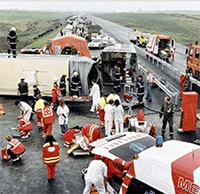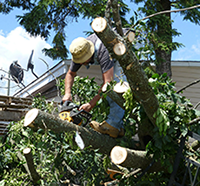Collaborative Workshops
Survive and then Thrive Collaborative Workshop
– includes Workbooks
The collaborative workshop is a way to share the cost of Continuity Planning among a few small operations. It brings together 3-7 similar businesses or organizations in one day-long workshop. It is an intensive working day and participating organizations leave with a strong draft of their Continuity Plan.
This structure works best for small organizations with fifty employees or less. They still need to have a structured plan and to go through the steps that guide decision-making. This workshop, while lowering cost, enables them to commit one day to making decisions and completing a plan that can secure the future of their operation.
Whenever possible, the participant organizations are comparable in terms of focus and size. For example, faith-based organizations attended one collaborative workshop. A few small retail sales businesses share one workshop and service businesses another. Likewise, non-profit organizations can coordinate a workshop to address their special needs.
Dr. Grant leads these businesses through the planning process, step by step. It is an intensive, work focused event. Each participating entity can bring up to five members of their planning team.
Before the workshop, businesses receive copies of the first few steps in the planning process from the Continuity Planning Workbook. They are also given a list of information they need to bring with them to the workshop.
Each business brings the core of their planning team with them, no more than 5 individuals. This enables them to work through decisions together and still keeps the overall workshop at a size that keeps activities on track.
At the end of the day, each business leaves with a solid draft of their Continuity Plan. A month later, Dr. Grant holds a one-hour conference call with each business to answer any questions and assists setting up a schedule to finalize their continuity plan.
This format is designed as an incentive for small operations to take Continuity Planning seriously with a minimum investment of time and money. The business or organization needs to take this process seriously and dedicate attention to completing the plan. Making decisions in advance of a crisis and putting procedures into place and then training personnel in advance ensure survival of your business, non-profit or faith-based organization since we know how fast a crisis can be upon us.
This is a good time to be planning the first steps of the Continuity Plan to use to get up and running after the current pandemic crisis.

75% of small businesses do not have a disaster recovery plan in place

52% of small businesses say it would take at least three months to recover from a disaster
Only 18% of companies surveyed that have fewer than 50 employees have a disaster recovery plan

Only 25% of businesses that close due to a major disaster ever reopen



